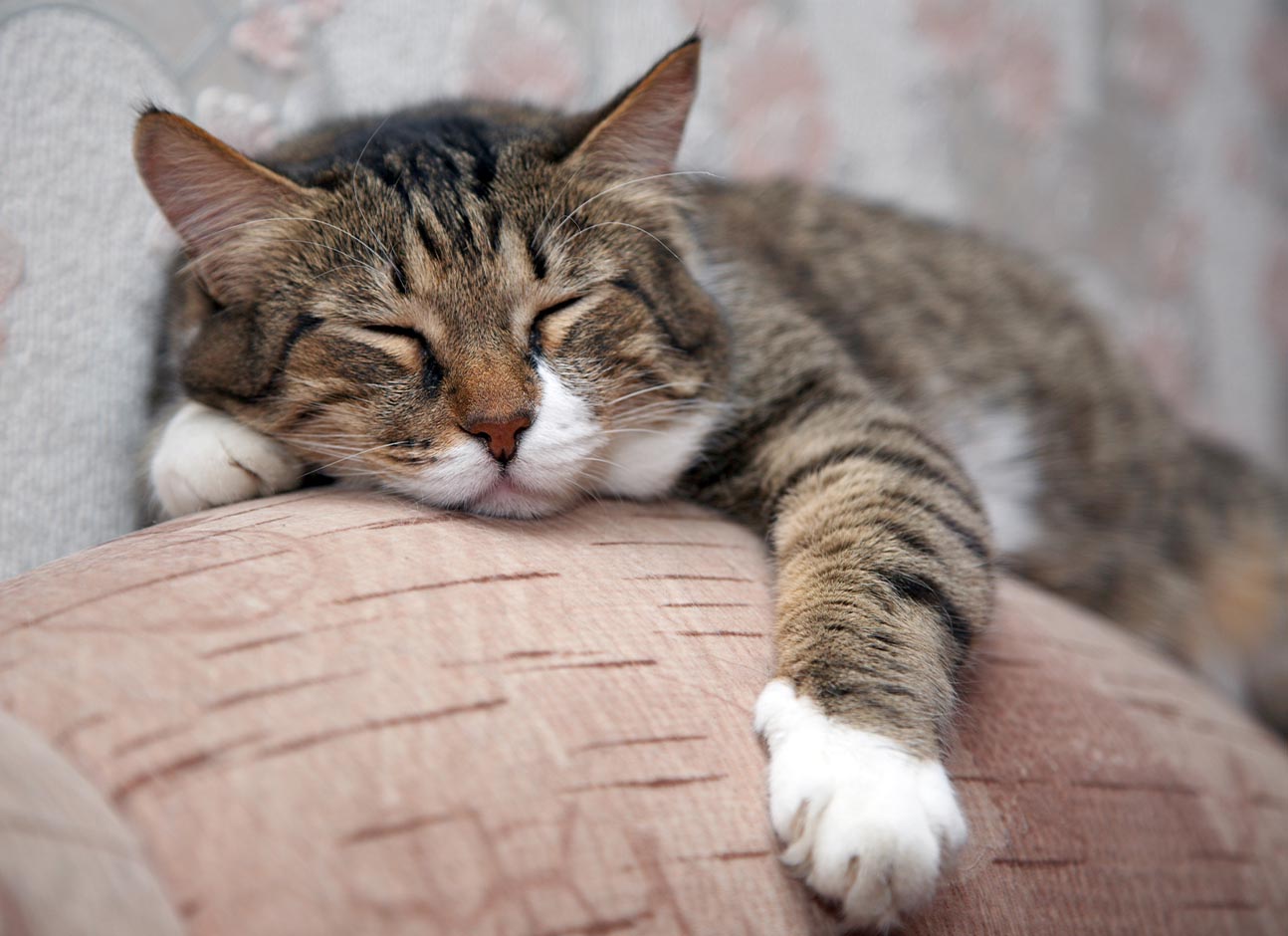Caring for an Older Cat
Older cats require increased attention to their needs, care, and love. Over the years, your cat has come to trust you, and as they age, they need your support more than ever.
Although modern medicine offers a wider and better range of veterinary care, aging in cats varies depending on numerous factors: whether the cat lives indoors or outdoors, how regularly and promptly they receive vaccinations, the quality of their nutrition, and the presence of any health issues.
Typically, indoor cats live longer than outdoor cats or those allowed to roam outside. An indoor cat can live up to 18 years or more, while the lifespan of an outdoor cat is often half that, although there are exceptions.
Signs of Old Age
The first signs of old age in cats include stiffness, slow movement, increased sleep, and avoidance of unnecessary jumps. Cats tend to remain mobile longer than dogs and are less prone to back pain and arthritis.
Gradual hearing or vision loss may not be immediately noticeable. You may observe this when your cat reacts less to your hand movements or vocal calls. With age, cats may experience frequent diarrhea, constipation, and urinary incontinence. These issues can be age-related or tied to kidney disease or diabetes. In such cases, consult a veterinarian to establish the causes and appropriate treatment. For constipation, vets may prescribe nutritional supplements to soften the stool and recommend adding oil to the diet. However, avoid increasing the amount of oil without a vet’s guidance, as some oils can deplete the cat’s natural vitamin supply, causing health issues.
If you notice an unpleasant odor from your cat’s mouth, consult a veterinarian. This may indicate gum inflammation or the need for tooth extraction. Diseased teeth are usually not a concern, as even toothless older cats can eat their usual food, including dry food.
Ensure your cat’s coat remains clean and inspect their skin and fur regularly. Dirt can lead to various skin diseases and parasite infestations.
Nutrition and Weight
Monitoring your cat’s weight is essential. Overweight cats face more health problems as they age, such as difficulty breathing and walking. In these cases, choose an appropriate diet for your pet.
When regulating your older cat’s diet, don’t be alarmed if they appear to lose weight dramatically or have more prominent bones. Older cats should follow a strict, low-fat diet.
Cat Care
Provide increased care, peace, and comfort for your elderly cat. Closely monitor their condition, checking for tumors, skin and coat health, and other potential issues.
Older cats need warmth, so create a warm, comfortable space for them. Avoid placing their bed too high, as it may be difficult for them to jump up.
By following these guidelines, you can ensure that your aging cat receives the care and attention they need to live a comfortable, happy life.
